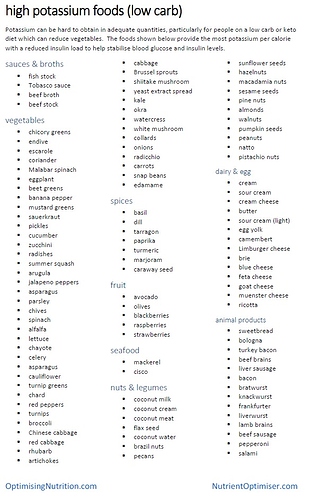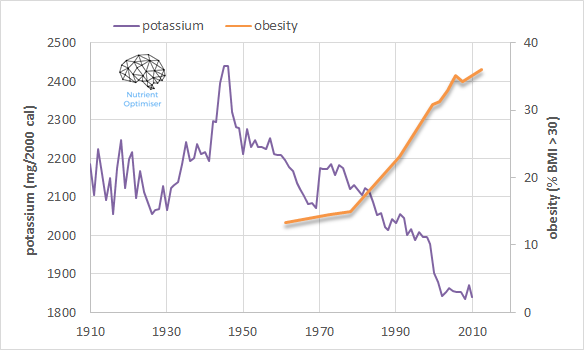That’s a good question, Virginia, and I think of that too, since the only potassium test I ever see mentioned is the serum one that measures the level in one’s blood.
I don’t know how fast potassium goes into cells and the spaces between them, only that almost all the potassium needs to end up there. Normal levels are 3.5 to 5 milliEquivalents (or 263 to 375 milligrams) per liter of blood. (Normal sodium levels are roughly 33 times higher.) So it’s a small amount of potassium in the blood, and it’s a tight range that needs to be maintained.
As far as I can tell, that tight range in the blood is what is the most immediately important for us - it’s needed to keep normal heart rhythm, nervous system electrical signals, smooth muscle and skeletal muscle function. The body has a relatively large store of potassium in tissue - I’m thinking this is to tide us over even in fairly long periods of low potassium intake.
If everything is working well, we’re set up to maintain those blood potassium levels - there is a part of our kidneys that excretes it (the hormone aldosterone goes there and cranks up special proteins that move potassium into our urine), and if we need to conserve potassium, there’s another part of our kidneys that reabsorbs it.
If one’s kidneys are compromised, it can thus really play hob, here. Lots of other things can affect potassium levels too - drugs like NSAID pain relievers, beta-blocker blood pressure stuff, ACE inhibitors, diuretics and birth control pills. Kidney disease and diabetes can result in too little aldosterone being produced, sending potassium levels too high.
I’ve read that potassium is easily absorbed in the small intestine, so to correct a deficiency should not be hard, all other things being equal. As far as the rate at which potassium goes into our tissues, I can’t find the answer to that.



